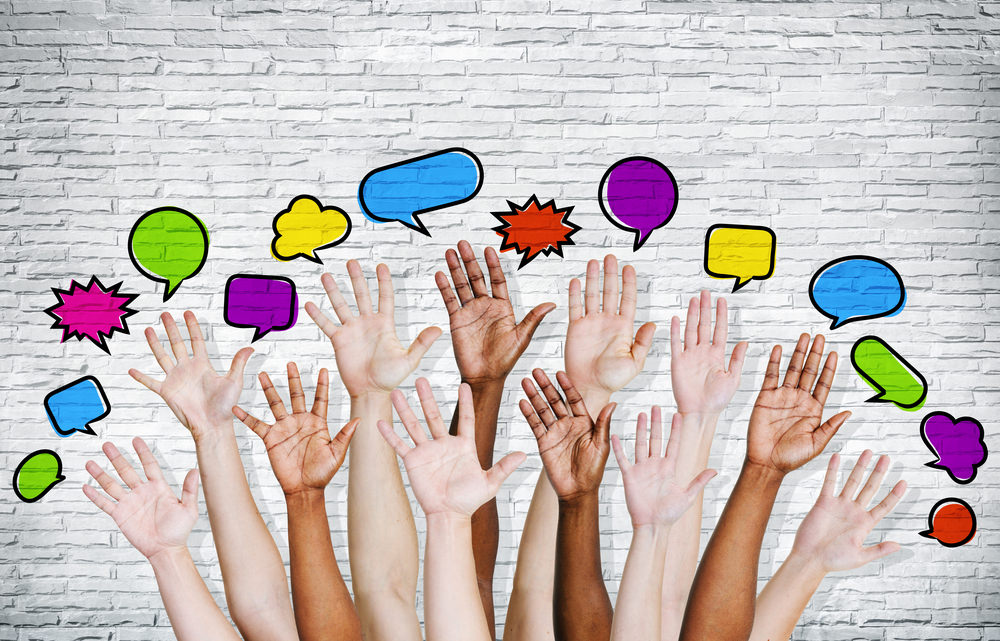The intent of this post is not to create an advocacy one way or another on the following 3 issues, but to create a discussion. Take a look at the questions raised and leave your feedback in the comments.
1) Platform
The gatekeepers are gone.
Traditionally, if you wanted to write something, you wrote it and sent it to a gatekeeper. This might be the editor of your local paper, a magazine, or even a book publisher. Now you can self publish a book, start your own blog, and develop your own Facebook following. If you wanted to be on TV, the news or a casting director had to pick you. Now, anyone can start up their own YouTube channel – and even get more viewers than they would trying to break into regular television.
Keep supporting MuslimMatters for the sake of Allah
Alhamdulillah, we're at over 850 supporters. Help us get to 900 supporters this month. All it takes is a small gift from a reader like you to keep us going, for just $2 / month.
The Prophet (SAW) has taught us the best of deeds are those that done consistently, even if they are small.
Click here to support MuslimMatters with a monthly donation of $2 per month. Set it and collect blessings from Allah (swt) for the khayr you're supporting without thinking about it.
The benefit of this is that it enables people and projects to build a qualified audience. Niche projects can garner support of interested people from around the globe, but if launched locally only might flounder. The obvious counter to this is that it lets people project authority when they would be otherwise undeserving of it.
One level past this for individuals is the problem of balancing between sincerely doing good work and building a personal brand.
Critical question: How do we approach building our own platforms, and how do we support or withhold support from others’ platforms?
2) Activism
Many turn to social media as a means of activism. It is a place to raise awareness about causes that might otherwise not receive proper attention. A natural consequence of advocating for certain causes is people questioning why you advocate a certain cause or why you don’t advocate for another cause.
At the basic level, there is the whole #shamegrenade issue – “Why do you raise awareness about Kashmir, but not Syria” and so on.
An overlooked part of social media activism is fatigue. Due to the ease of clicking and sharing, we feel compelled to start advocating for every good cause we see. If we don’t, then our friends (or followers) become judgmental and start asking or demanding we advocate for other things as well. One person simply cannot advocate for every single humanitarian cause, social cause, political cause, and save the whales from Facebook. It is analogous to making every announcement possible after Juma prayer. The announcement session would last for 6 hours. You must be selective about where you put your energy so that you are most effective in the few causes most pertinent to you.
An important thing to keep in mind with activism on social media is that your history is permanent. A more nuanced criticism someone might make of you is why you openly criticized something while supporting something that is seemingly contradictory. Or when you take stances that seem to conflict with one another. It is easier and easier for people to legitimately point out your inconsistencies in what you post. You are accountable to your own track record. See also: #BringBackOurGirls Guide to Recent Internet Debates.
Critical question: How do you prioritize and focus on which issues are important, and how do you decide what to campaign for on social media – and to what extent? Moreover, how do we maintain proper decorum while having these discussions?
3) The Intersection of Social Media and Live Events
It has become customary for events to have an official hashtag. This makes it easy for people to find all status updates about a particular event, and gives you a pulse of what is happening practically in real time. At this year’s ISNA convention, it created a few interesting situations. First was the statement from Dr. Tariq Ramadan, and then there were a number of other incidents that took place which created a lot of fireworks online. I’m not detailing the incidents here because they aren’t pertinent to the point being made – the point being how events will need to learn to manage the social media element. Please note – the remainder of this discussion is general to any Islamic event, not specific to ISNA.
With thousands of people in attendance, and so many things going on simultaneously, it is hard to know about or hear about everything that happens at a conference. At ISNA, a number of things happened that I would never have known about had I not seen them on Twitter.
This presents a new set of challenges to event organizers. From a PR perspective, they are now forced to respond and acknowledge complaints that otherwise could have been overlooked. What are the appropriate channels to raise an issue while at an event – or is posting on social media now the accepted norm?
Critical question: How do we develop guidelines for responsible social media usage at live events? How should organizers react to live feedback during events (especially controversial items that might need well thought out discussion)?
—
For more content like this, please join the Fiqh of Social Media email list and get a copy of the free booklet – “40 Hadith on Social Media” when you sign up.














Sheharyar
September 18, 2014 at 11:37 AM
‘How do you prioritize and focus on which issues are important, and how do you decide what to campaign for on social media – and to what extent? Moreover, how do we maintain proper decorum while having these discussions?’
I have a few points for discussion.
Firstly, it depends on who you are and what status you carry. If you’re involved in activism as an individual then it doesn’t really matter what you focus on (at least, doesn’t matter to anyone else). You will naturally focus on issues which involve you in some way. A good example is how British Muslims were particularly involved in Gaza activism due to the British Govt’s role in the conflict. But if you have a stronger status, such as that of an NGO or a Govt organisation there will be greater scrutiny over where you direct your resources and rightfully so. A governmental organisation would be expected to act in the interest of its followers, and typically they should target areas of large global significance which individuals cannot influence, instead of say, cats stuck in trees.
As for how we as Muslim individuals should prioritize issues… it’s difficult to say. Obviously we should act with humanitarianism in mind but there are many many humanitarian causes out there. I guess all I can suggest is that a person should really study these causes before they take a role more significant than a FB share or a retweet. I think it is only through fully understanding the areas where activism is necessary that we can begin deciding which cause to devote to (as we will learn why this cause is important to us, or how we particularly can help), and only through this will a natural desire to help will develop. How many causes to devote to is up to the individual but we should remember the great point MM always makes: we should not ever feel disheartened by shamers about areas where we aren’t focusing. And as we hear all the time, we should make sure our family lives are in order before we go offering help to strangers across the world.
umaneesa
September 18, 2014 at 8:55 PM
Sorry to sidetrack but whatever did happen to #bringbackourgirls ?
Shaheen
January 7, 2021 at 6:41 AM
The given link is redirecting to a porn site check it please
Wael Abdelgawad
January 8, 2021 at 2:25 AM
I removed the two links. It’s not my role on the website, but I think it’s safe to say that that’s not something we want to stay up there for even a second longer than necessary.
Zeba Khan
January 12, 2021 at 12:37 PM
JazakAllahKhair!